Construction companies like general contractors, home builders, architects, and roofing specialists can significantly benefit from SEO strategies designed to attract more clients and improve search engine rankings.
So, let’s dive into our practical guide tailored specifically for you!
Why SEO is Essential for Construction Companies
In today’s digital world, having a strong online presence is no longer optional for construction companies.
Potential clients are searching for contractors, architects, and builders online, and if your business isn’t visible, you’re losing leads to competitors.
Effective SEO (Search Engine Optimisation) ensures that your business appears prominently in search results, helping you attract qualified leads and grow your revenue.
Here’s how you can implement practical SEO strategies to increase visibility and win more clients. If you prefer to do it yourself, this guide will walk you through every step. And if you’d rather focus on what you do best—construction—we’re here to handle it for you.
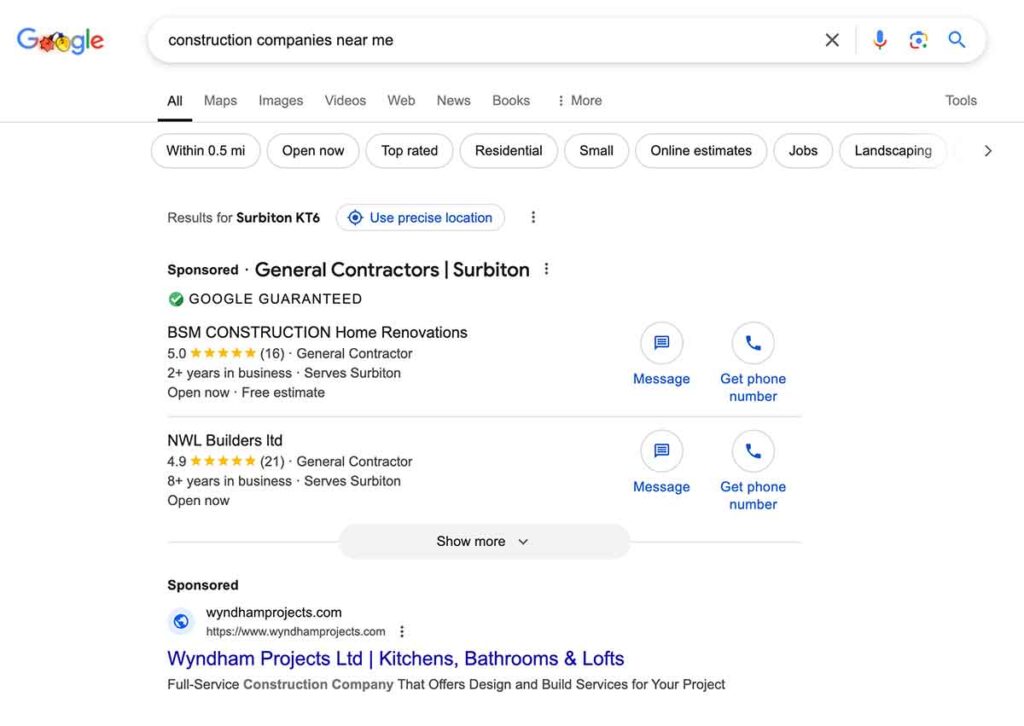
What is SEO and Why Does it Matter?
SEO, or Search Engine Optimisation, is the process of improving your website to rank higher on search engines like Google.
For construction companies, this means ensuring potential clients find your services when searching for contractors or builders in their area.
An effective SEO strategy involves:
Understanding what your audience is searching for.
Ensuring your website is fast, mobile-friendly, and informative.
Building your authority online through quality content and backlinks.
By optimising your online presence, you’ll attract more leads and outpace competitors in your local market.
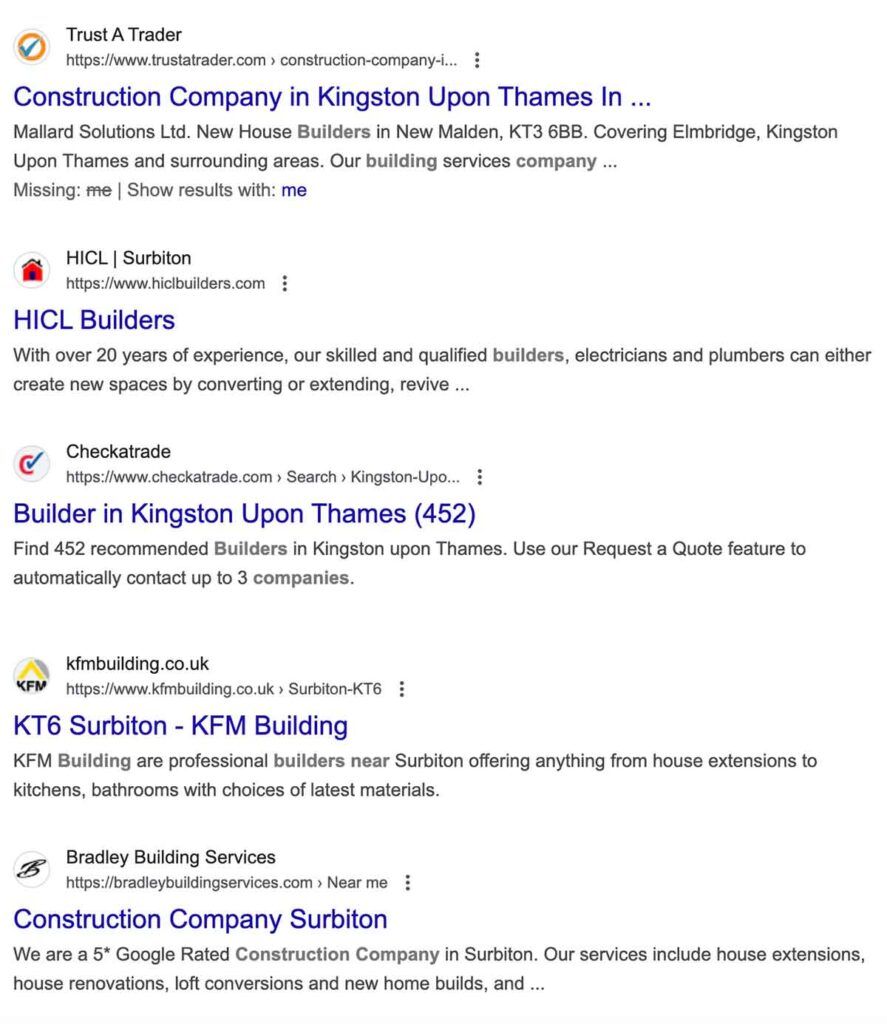
Summary: What Can Be Done to Boost Your SEO
To make it easier, here’s a quick overview of actionable steps:
Identify Your Target Keywords: Discover what potential clients are searching for and align your website content to these terms.
Create Pages and Content: Build service pages, blog posts, and other relevant content to attract and convert visitors.
Optimise Your Content: Ensure your content is aligned with keywords, structured effectively, and engaging to your audience.
Optimise for Local Search: Make sure your business appears in local search results with accurate listings and location-based keywords.
Build Quality Backlinks: Establish authority by earning links from reputable websites in the construction and related industries.
- Work on Your Technical SEO: Ensure your website is fast, mobile-friendly, and easy to navigate, with no broken links or errors.
Track and Improve: Use tools to measure your performance and refine your strategies over time.
Need Help? SEO can be complex, but Aksel Digital specialises in helping construction companies optimise their websites, attract more leads, and grow their businesses. Contact us today for expert support!
Now, let’s dive into the details of each step, starting with identifying the right keywords.
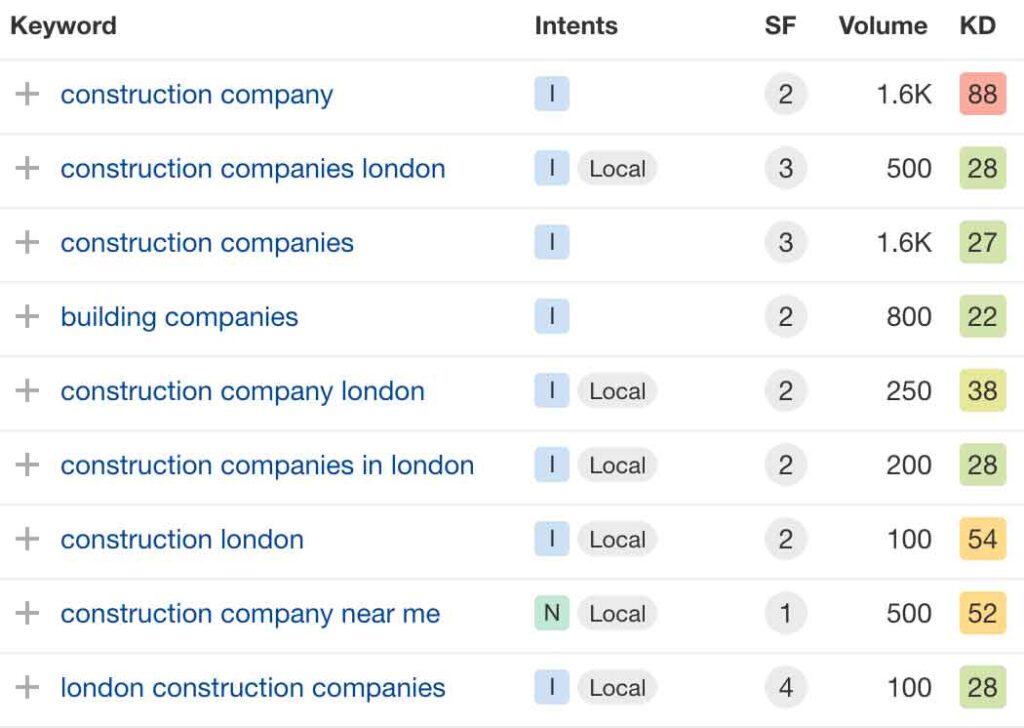
1. Identify Your Target Keywords
Before diving into actionable steps, let’s first understand the types of keywords that matter for construction companies. Broadly, these include:
- Service-Based Keywords: Terms related to the specific services you offer.
- Example: “office construction services,” “roof repair specialists.”
- Location-Based Keywords: Keywords that include your city, region, or service area.
- Example: “construction companies in Leeds,” “builders near Birmingham.”
- Problem-Solving Keywords: Phrases potential clients use to find solutions to their problems.
- Example: “how to renovate a commercial space,” “best materials for home extensions.”
Actionable Steps:
- Use tools like Google Keyword Planner or Ahrefs to research relevant keywords.
- Example: “residential construction services London” or “commercial building contractors near me.”
- Focus on long-tail keywords that reflect specific services and locations. These are less competitive and more likely to convert.
- Example: “eco-friendly home builders in Manchester.”
- Explore additional keyword research tips in our dedicated guide: How to Do Keyword Research for SEO.
Pro Tip: Think like your customer. What would they type into Google when looking for your services?
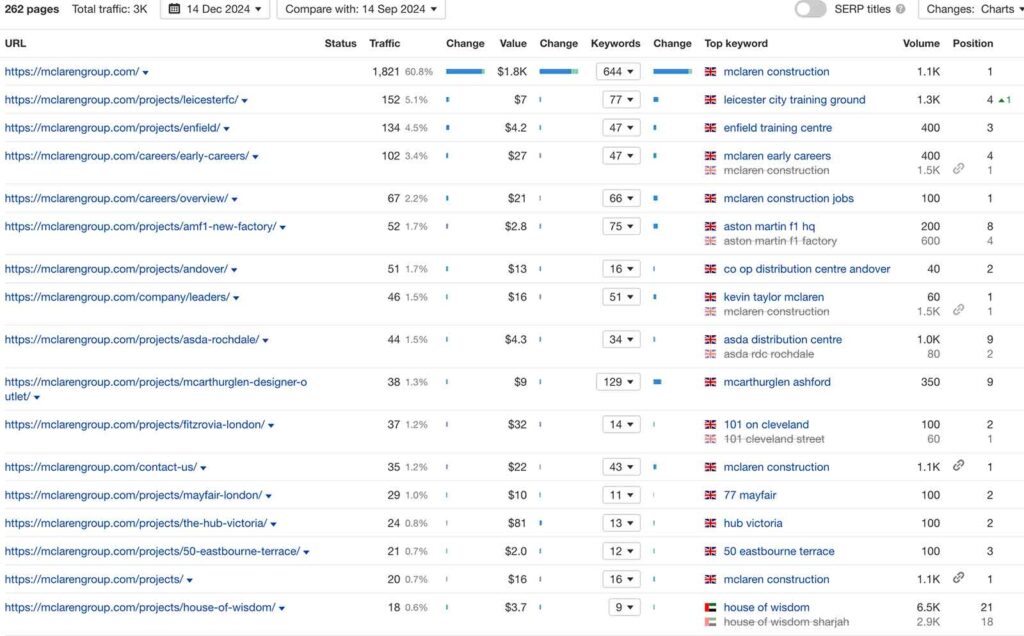
2. Create Pages and Content
Once you have a list of target keywords, it’s time to create content that aligns with these search terms. The type of content you need will depend on your audience and their needs.
What Type of Content is Needed?
Service Pages: Highlight specific services, such as residential construction, commercial building, or renovations, using target keywords.
Example: “Office Renovation Services in Manchester.”
Blog Posts: Answer client questions and showcase your expertise.
Example: “How to Choose the Right Contractor for Your Project.”
Project Portfolios: Showcase completed projects with detailed descriptions, images, and client testimonials.
Example: “Eco-Friendly Home Extension in Leeds.”
FAQs: Address common client concerns with a dedicated FAQ page.
Example: “What permits are required for building extensions in the UK?”
Why is This Important?
Content is the backbone of your website. Search engines use it to understand what your site is about, and potential clients use it to decide whether to contact you. By aligning content with your target keywords, you can:
Improve your search rankings.
Answer client questions before they even ask.
Build trust and establish authority in the construction industry.
Actionable Steps:
Map your keywords to specific pages and blog posts.
Example: Use “commercial construction services London” on a service page and “how to plan a commercial renovation” for a blog post.
Write detailed, informative content that solves problems and answers questions.
Include your target keywords naturally in the content, headings, and meta descriptions.
Regularly update your blog with new posts that address trending topics or seasonal client needs.
Pro Tip: Don’t forget to use high-quality images, videos, and testimonials to make your content more engaging and credible.
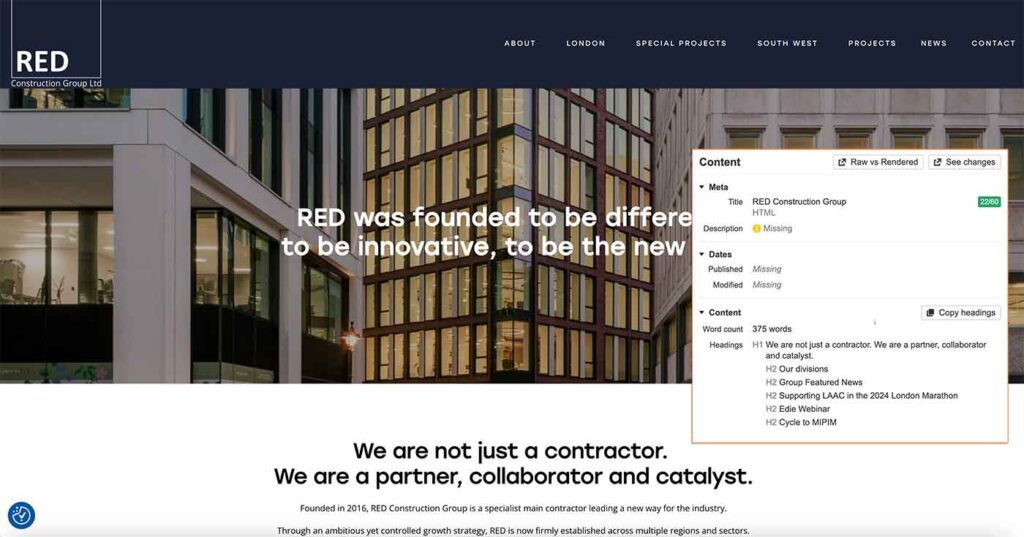
3. Optimise Your Content
Creating high-quality content is just the beginning—optimising it ensures that it ranks well and attracts the right audience.
By aligning your content with target keywords, structuring it effectively, and improving readability, you can maximise its impact.
Actionable Steps:
Use Target Keywords Effectively:
Include primary keywords in the title, headings, and the first 100 words of your content.
Naturally, incorporate secondary keywords throughout the text without overstuffing.
Write Engaging Meta Tags:
Craft compelling meta titles and descriptions that include your main keyword.
Keep meta titles under 60 characters and descriptions under 160 characters.
Use Internal and External Links:
Link to related pages on your website to improve navigation and user experience.
Add authoritative external links to provide additional value to readers.
Structure Content for Readability:
Use headings (H1, H2, H3) to break up the content and make it skimmable.
Use bullet points, numbered lists, and short paragraphs to enhance readability.
Add Media and Alt Text:
Include relevant images, videos, or infographics to make your content more engaging.
Optimise image file names and add descriptive alt text for accessibility and SEO.
Pro Tip: Learn more about crafting SEO-optimised blog posts in our guide: How to Write a Blog Post.
Need Help?
Optimising content can be time-consuming and technical. That’s where we come in. Check out our On-Page SEO Services to ensure your content is perfectly optimised for search engines.
4. Optimise for Local Search
What is Local Search?
Local search refers to the process of optimising your online presence to attract more business from relevant local searches on Google and other search engines.
When users search for services like “construction companies near me” Google displays results based on their location.
These results often include a map, known as the Local Pack, along with a list of businesses.
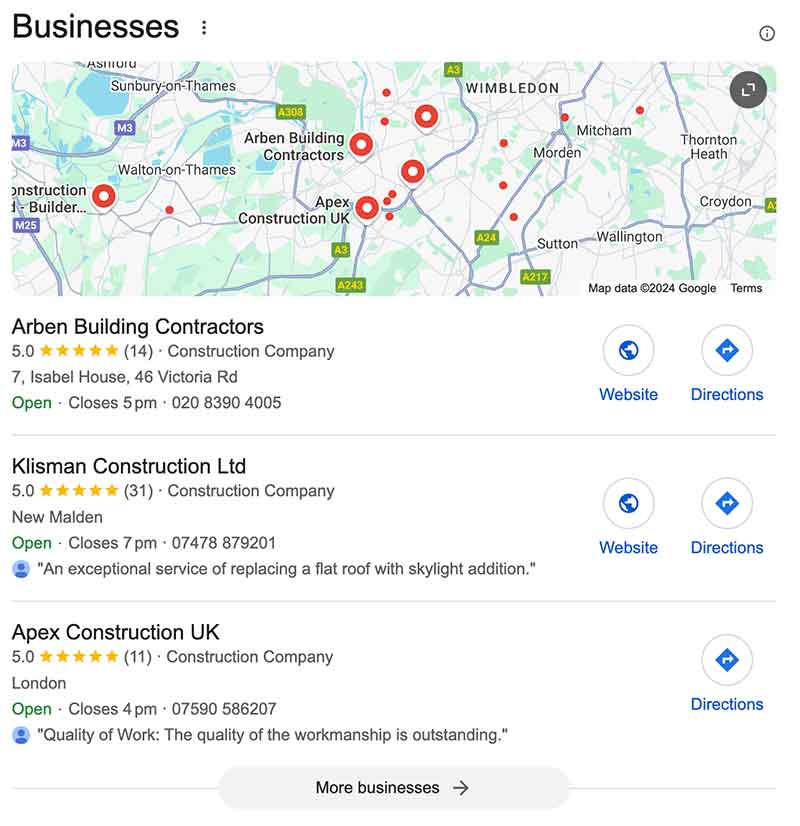
Local search is crucial for construction companies since most clients look for contractors in their area. Being visible in local search results ensures you reach potential clients who are ready to take action.
If you’re unsure which category to choose for your business listing, refer to our complete guide: Google Business Category List.
Additionally, listing your business on other directories can further boost your local presence. Here’s a curated list of Free Business Listings in the UK to help you get started.
Actionable Steps:
Create a Google Business Profile (formerly Google My Business): Ensure your name, address, and phone number (NAP) are accurate.
Include location-specific keywords on your homepage, service pages, and meta descriptions.
Example: “Award-winning construction services in Birmingham.”
Add a map to your contact page and embed your Google Business profile.
Keep your profile updated with photos, services, and regular posts.
Respond to reviews promptly to build trust and engagement.
Pro Tip: Encourage satisfied clients to leave positive reviews on Google—these improve your local rankings and build trust.
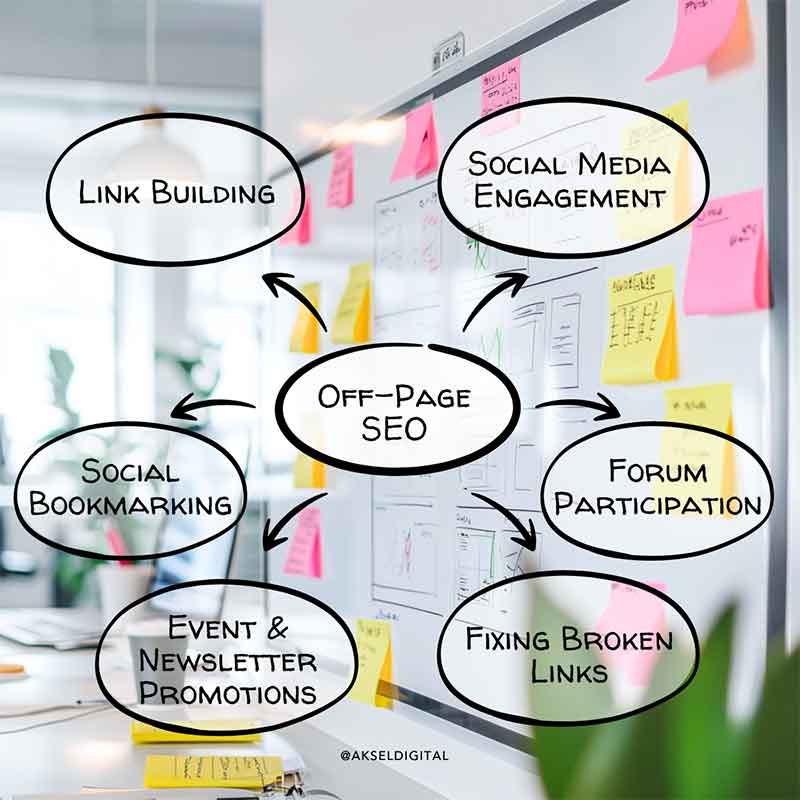
5. Build Quality Backlinks
Backlinks, or links from other websites to your site, are a vital factor in improving your website’s authority and search engine rankings.
For construction companies, high-quality backlinks signal trust and expertise in your field, helping you stand out from competitors.
What Makes a Quality Backlink?
- Links from authoritative websites, such as industry blogs, trade organisations, or suppliers.
- Relevance to your niche or industry.
- Natural inclusion in meaningful, high-quality content.
Actionable Steps:
- Guest Posting:
- Write or commission guest posts for industry-related blogs or websites.
- Ensure the content is valuable and includes a natural link to your website.
- Need help? Check out our Off-Page SEO Services to streamline the guest posting process.
- Collaborate with Partners:
- Exchange backlinks with suppliers, contractors, or local business associations.
- List your business on relevant online directories (see our Free Business Listings in the UK).
- Create Shareable Content:
- Develop infographics, case studies, or guides that others will want to link to.
- Promote these on social media and through email outreach.
Pro Tip: Focus on quality over quantity. A handful of high-quality backlinks is more valuable than hundreds of low-quality links.
6. Optimise Technical SEO
Actionable Steps:
Ensure your website is mobile-friendly. Use Google’s Mobile-Friendly Test to check.
Improve site speed using tools like PageSpeed Insights.
Fix broken links and ensure all pages have unique, descriptive meta titles and descriptions.
Pro Tip: A fast, well-structured website improves both user experience and search engine rankings.
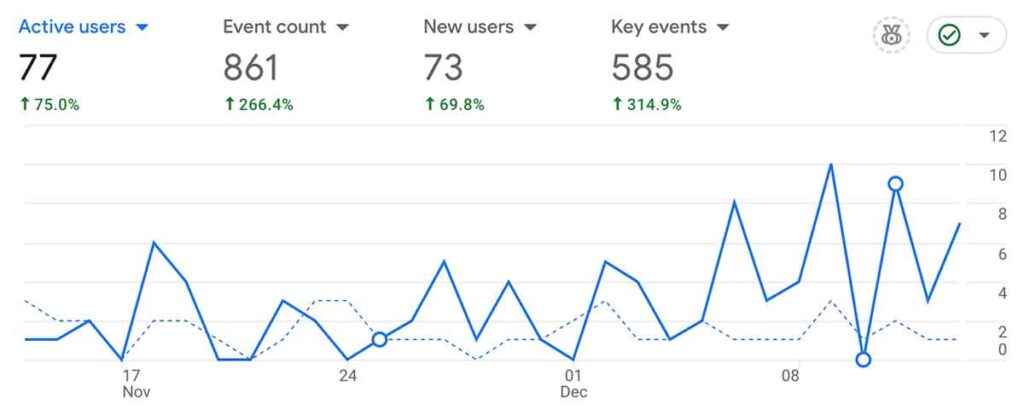
7. Track and Improve Your Results
Actionable Steps:
Use tools like Google Analytics and Google Search Console to monitor traffic and keyword rankings.
Identify pages with high bounce rates and update them with engaging, informative content.
Regularly update your site with new blog posts, images, and case studies.
Pro Tip: SEO is not a one-time task—it requires consistent effort and monitoring.
Why Choose Aksel Digital for Your Construction Company’s SEO
Implementing effective SEO strategies takes time and expertise. At Aksel Digital, we specialise in helping construction companies like yours achieve higher search engine rankings, attract more qualified leads, and grow your business.
We’re here to handle the heavy lifting—from keyword research to technical optimisation—so you can focus on building amazing projects.
Not sure where to start? We can help with practical resources too! If you’re ready to take action yourself, check out our:
Free Keyword Map Template to organise your target keywords.
On-Page SEO Checklist to ensure your pages are fully optimised.
Ready for expert support? Let us guide you every step of the way.
Contact us today for a free consultation!
Implementing effective SEO strategies takes time and expertise. At Aksel Digital, we specialise in helping construction companies like yours achieve higher search engine rankings, attract more qualified leads, and grow your business.
We’re here to handle the heavy lifting—from keyword research to technical optimisation—so you can focus on building amazing projects. Ready to get started?
Contact us today for a free consultation!




